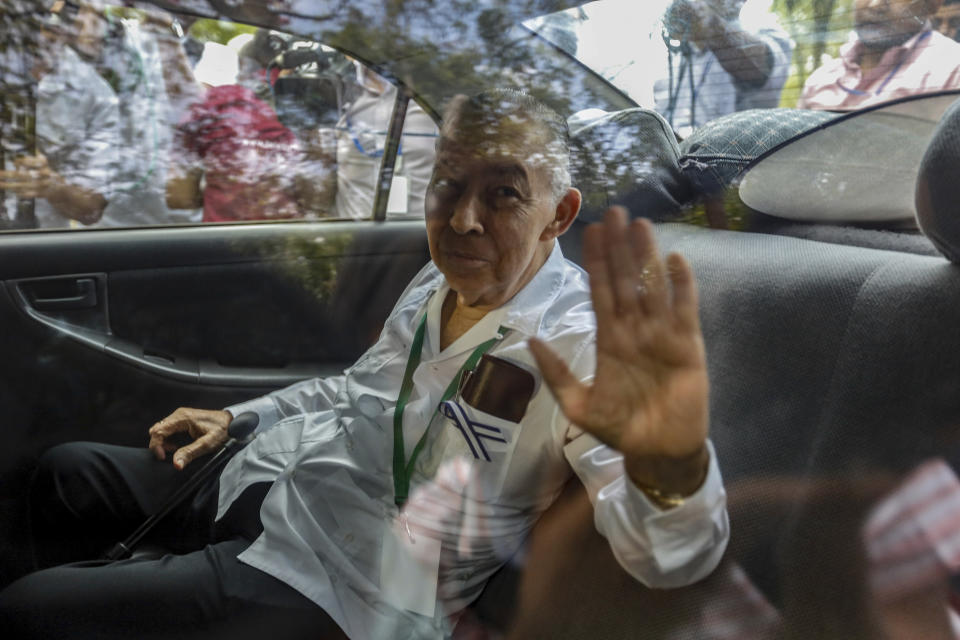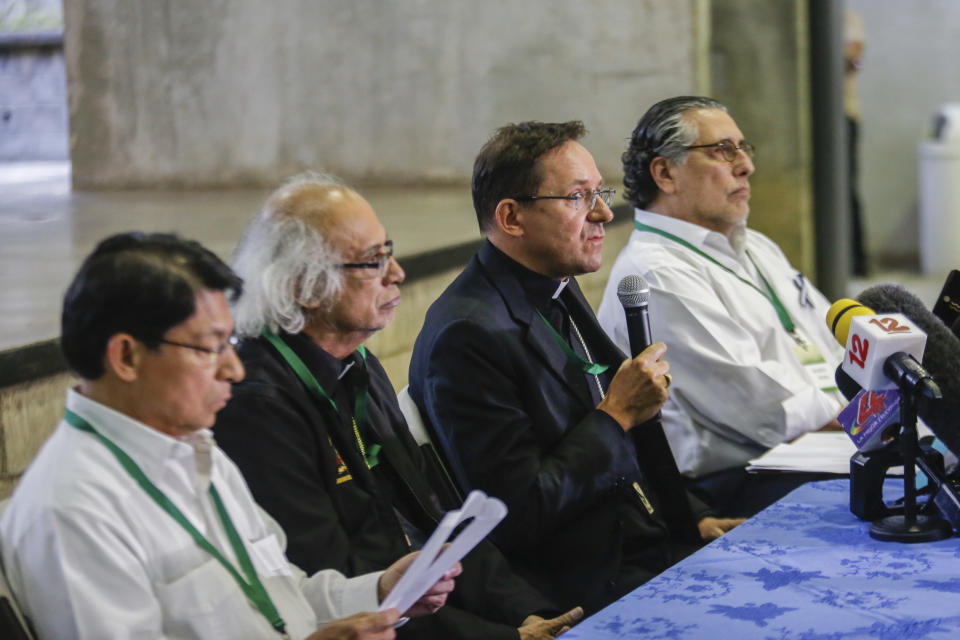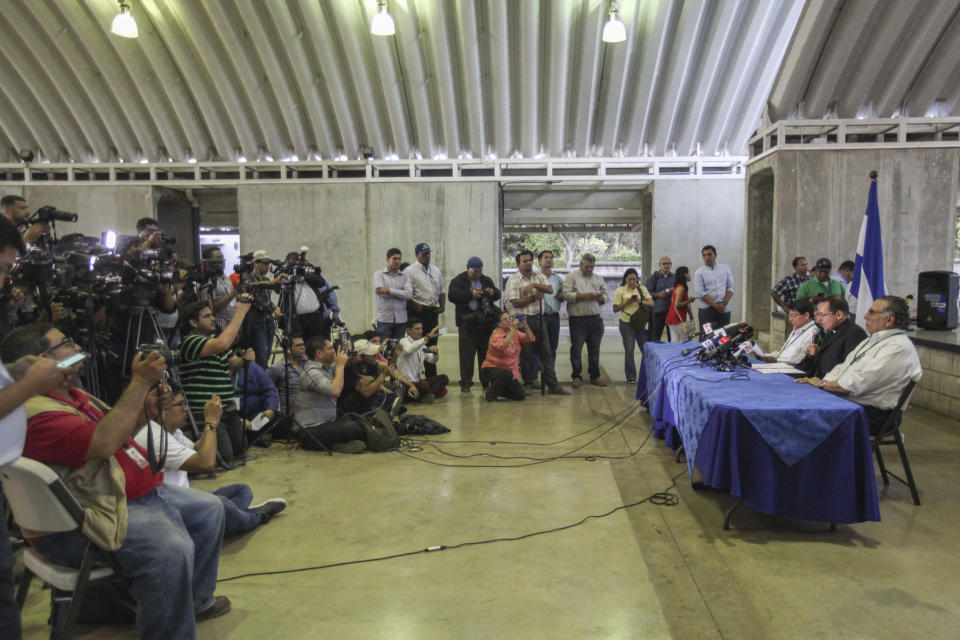Nicaragua's government, opposition wrap up 2nd day of talks
MANAGUA, Nicaragua (AP) — The government and opposition representatives wrapped up a second day of talks Thursday, and a coalition of social groups said no "substantive issues" had yet been discussed in the effort to calm Nicaragua's political standoff.
Still, the Civic Alliance said the negotiations had made progress and the parties would meet again Friday.
"It is important to reiterate that the negotiations have not entered into substantive issues," the coalition said, but its statement stressed that the opposition considers it crucial for the rules of the talks to first be clearly defined.
The government did not comment on the talks.
Discussions were again held behind closed doors at a business institute south of the capital. President Daniel Ortega, who became the focus of anti-government demonstrations last year, has sent lieutenants to negotiate with an opposition delegation comprising members of the business, political and academic worlds.
It's a sharp contrast to a previous, failed attempt at dialogue last year, when the sessions were broadcast live and Ortega was forced to endure an awkward moment when a student leader admonished him to "give in" and leave office.
The Civic Alliance's statement said it remains committed to demanding the release of those it considers political prisoners; the restoration of freedom of expression rights following a crackdown on independent media outlets, journalists and anti-government protests; and electoral reform.
Ortega has resisted calls for moving up elections currently scheduled for 2021, and government officials have repeatedly characterized protesters seeking his exit as coup-mongers and terrorists.
At least 325 people were killed in last year's unrest and crackdown by security forces and armed, pro-Ortega civilian militias, according to the Inter-American Commission on Human Rights. Hundreds more were jailed, and thousands went into hiding or exile.
Government officials said 100 people jailed in connection with the protests were granted conditional release Wednesday before the talks began.
The secrecy surrounding the talks bothered some.
"Transparency and communication to the people, with the support of what few independent media exist, are key to the development of this attempt to find a negotiated exit" from the crisis, said Violeta Granera, head of the opposition group Broad Front for Democracy.
Political analyst Oscar Rene Vargas has speculated that Ortega could seek to delay progress and try to deal directly with Washington, with the goal of getting sanctions imposed by that country in December lifted.
He said another reason why Ortega might want to buy time is to see how a more acute political crisis plays out in Venezuela, where socialist President Nicolas Maduro is under pressure from opposition leaders, protesters and dozens of foreign governments.
Venezuela has been a key ally of Ortega for years. Since 2007, it has sent Nicaragua large shipments of oil on preferential terms — though that has waned more recently due to Venezuela's economic collapse.




